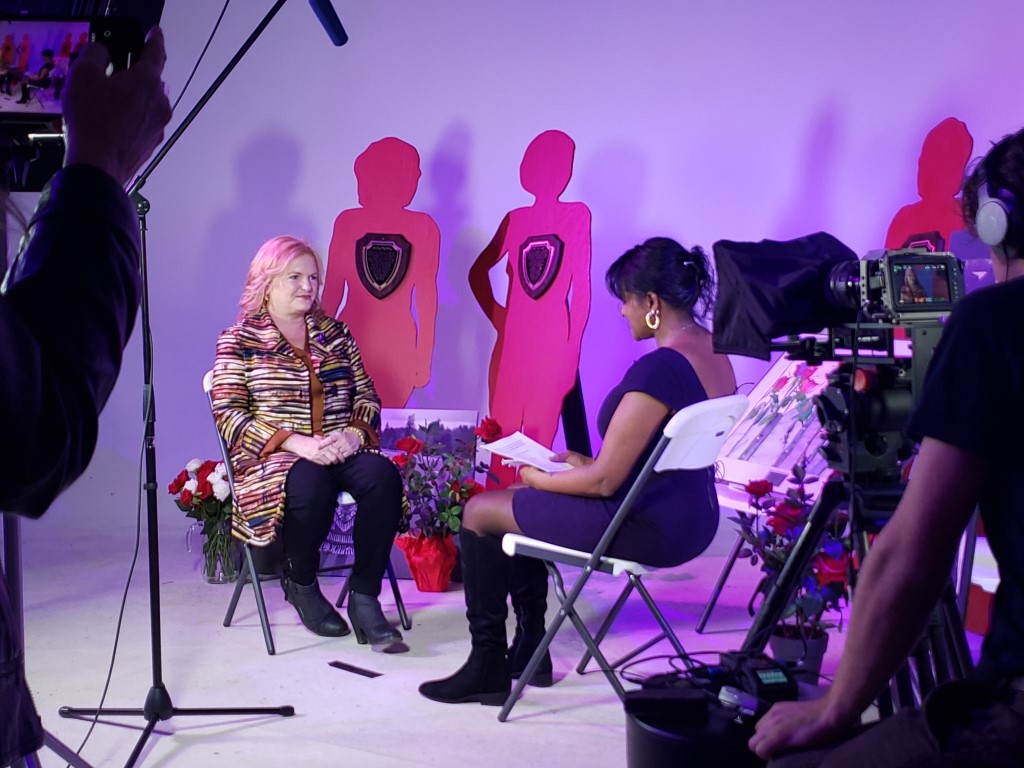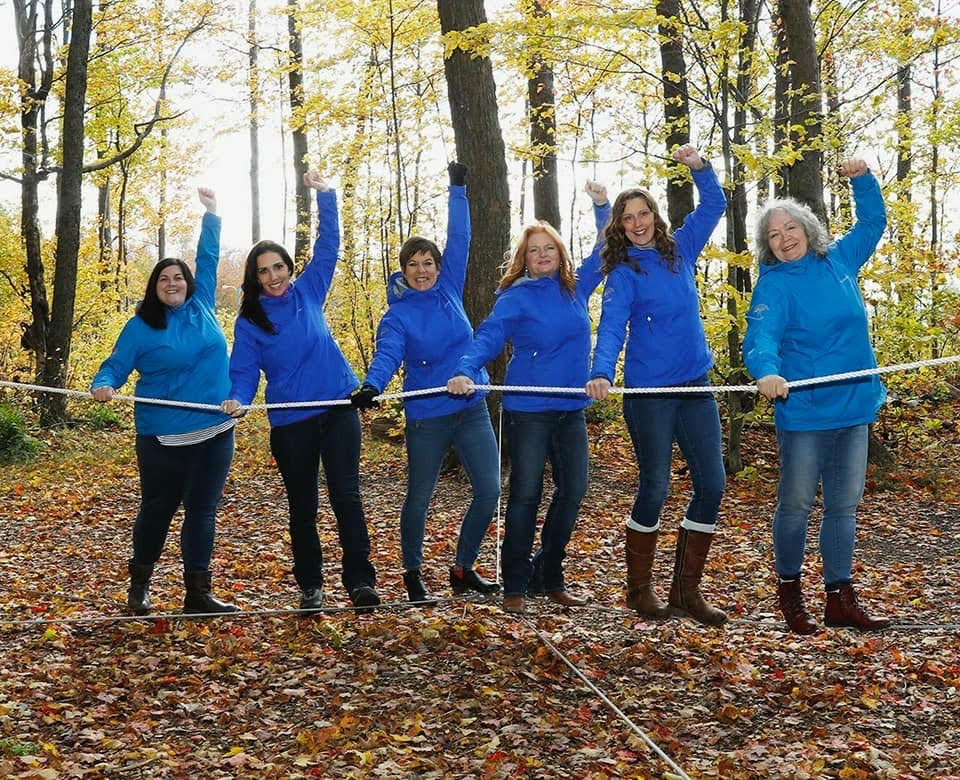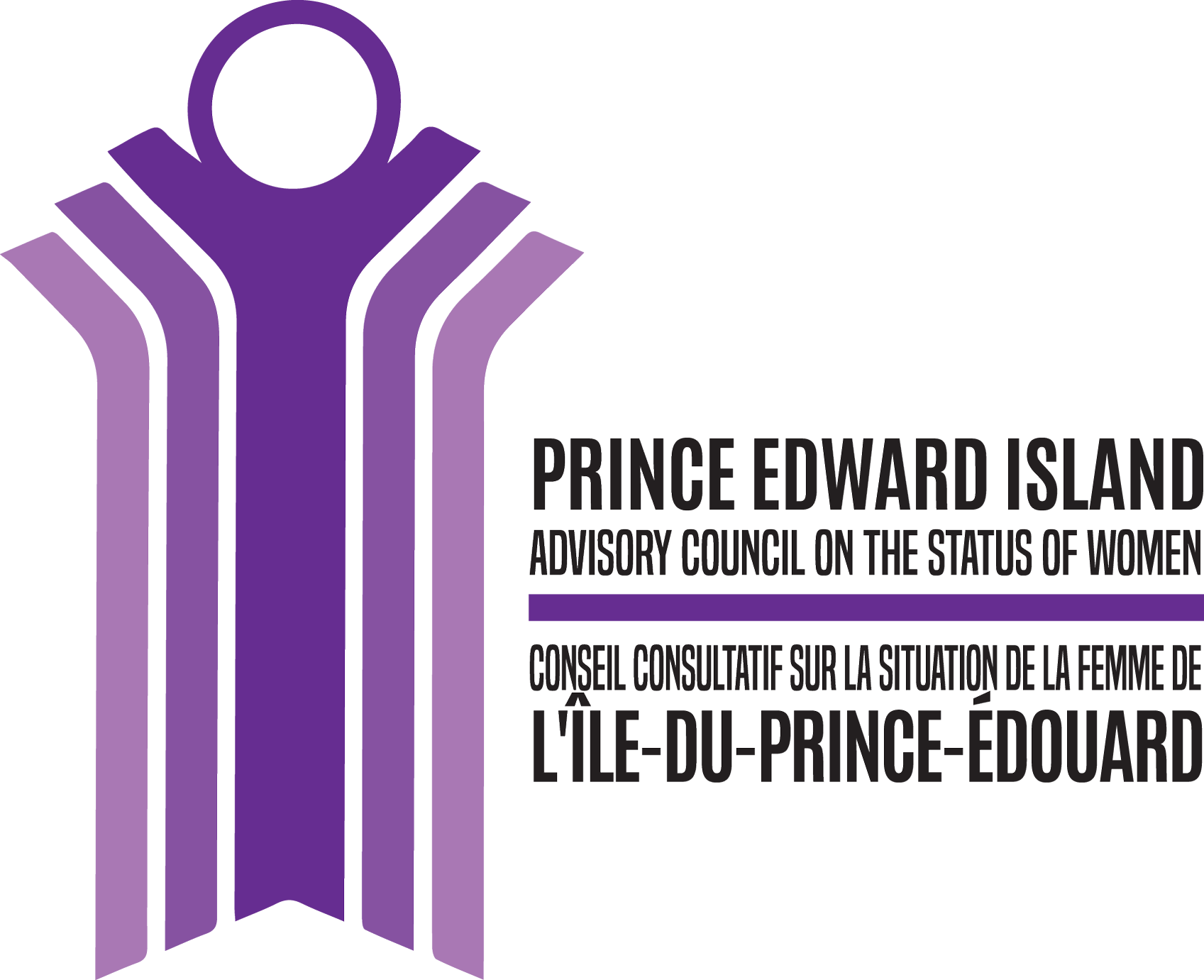
Roxanne Carter-Thompson is the Executive Director of the Adventure Group in Prince Edward Island, and she told her story of being a survivor of violence for the first time in public to Chairperson Debbie Langston for the video commemoration of the Charlottetown, PEI, Montreal Massacre Memorial Service for December 6, 2020.
When Dawn Wilson bravely spoke of her experience to all of us last year I was impacted greatly. I could hear my inner voice say, “It’s time.” I resisted. I said, “I am not ready yet.” And then I heard, “Oh, yes you are!” and on the way home I spoke out loud the messages that I wanted to share.
I have known for 27 years that there would come a time where I would share my story. I would drive by this painted sign that said “STOP the silence on violence,” and it would challenge me. I chose ways to take action, but I still kept silent.
I told myself that one day I would end my silence. I cautiously involved myself in committees where I could take action but not have to be vulnerable, as I had a child to raise on my own. Then I married a wonderful partner who accepted me with the wounds I carried as a survivor. My son is now a grown man.
I am ending my silence.
I am a mother, daughter, a friend, an accomplished equestrian. I have spent the last 27 years advocating for social change. What you don’t know is that what led me to the work I do now is that I am also a survivor.
I remember the first time I told one of my childhood friends why I left my partner. She looked at me and said, “I can’t believe you let that happen to you. You were so confident. You were one of those girls who would never let a boyfriend treat you that way,” and I remember walking away from that conversation thinking, “Oh, I’m not doing that again. I didn’t like how that felt at all.”
In my home, I hid the holes in my walls. I had made excuses for my partner, but with my childhood friend, I felt I could be honest. I felt I could be vulnerable. I was wrong.
A few years later I had dated or I thought I was going to date an RCMP officer from New Brunswick, and I remember when I told him why I wasn’t with my partner. Before I even got the words out, he looked at me and said, “Oh please tell me you’re not one of those women.” And again I felt that same feeling: “Oh, I won’t do that again.”
Shame had slapped me in the face. The message I was receiving was that this was my fault. I got myself into the situation. I should’ve seen the signs. My parents fostered; we had children in my home who came from abusive homes. I should’ve known better. I should’ve prevented this. I should’ve seen the signs.
I remember when I went to Anderson House, I was so ashamed to be there.
I thought I was telling the individual who was doing the intake a story that she had never heard before. I said, “My situation is different. The violence didn’t happen untiI I was pregnant. He writes me letters and brings me flowers after he has been violent. He really is sorry.”
I found out that day that my story was not different. In fact, I was a pretty typical statistic.
I would be lying if I didn’t say that it’s still hard for me to say the word “survivor,” because what comes with that word for me is shame. Twenty-seven years later, I still feel that shame.
I still jump when a man raises their voice. I carry a few other wounds. Some are physical, some are below the surface.
I am a survivor. Twenty-seven years ago, the laws were different than they are now. That said, there is MUCH more to do.
In 1993 I had to leave the home that I shared with my partner; the law changed, and now women do not have to leave the family home.
At that time I couldn’t put supervised visits in place because a child witnessing violence wasn’t the same as experiencing violence; that law was changed.
These and other positive changes have become possible because of the many people who are watching here today. They are the people who come together every year to remember the women who are our sisters, friends, and daughters, whose lives were taken brutally. We come together today to mourn the lives lost.
Let this sorrow fuel you to go forward. Take the call to action and make the changes that are needed. Although there has been progress there is still much to do. I left the relationship in 1993; I was fortunate enough to be hired to work at the Adventure Group, and that was one of the best decisions I ever made. It was supposed to be a six-month contract, and little did I know how it was going to change my life, or the people I would be introduced to while providing me with opportunity to help others change their lives.
I did not do this alone. There were countless people who had an impact on me.
They encouraged me to go back to university. They encouraged me to be brave and strong with their words and their actions.
The nurse who said to me, “I see you have been in the emergency room a few times in the past several months, dear. Is there anything you want to tell me?”
The friend who sat with me in the car down the road from my driveway until my partner fell asleep so that I could go into my house without an innocent comment escalating into a violent outburst.
The board member who gave me the opportunity to take a six-month contract 27 years ago at a non-profit organization that changed my life.
That shame that I carried could have prevented me from moving forward in my life if it wasn’t for the many people who stepped forward and became my mentors, and encouragers.
The person who wrote my reference letter so that I could be accepted to Carleton University through UPEI. He wrote in my reference letter that I deserved a place at the front of the class, and he has no idea how that carried me through.
The board member who made time for me and saw past my insecurities and wounds and still mentors me till this day.
Today is the day that we remember, but it’s also the day that we make a commitment to taking action.
We all have a responsibility to report violence and to support individuals to leave abusive relationships by connecting those individuals with the people who can help them.
I encourage you to be the light for someone else, to be their voice of encouragement, to act on that kind gesture that tugs at your heart. Even though you are tired and feel like you do not have time, make the time, as you do not know how that one action or seed that you plant, how It will grow, how it will affect that individual and their children, and how it may impact an entire community.
Compassion goes a long way. The people that impacted me the most are not the people that gave me sympathy – they gave me opportunity. They gave me moments to seize and goals to strive for.
We all have a role to play, I encourage everyone watching today to think of the role you can play.
Sincere thanks to Roxanne for her moving speech. You can hear her deliver it herself as part of the video commemoration of the Charlottetown, PEI, Montreal Massacre Memorial Service.



